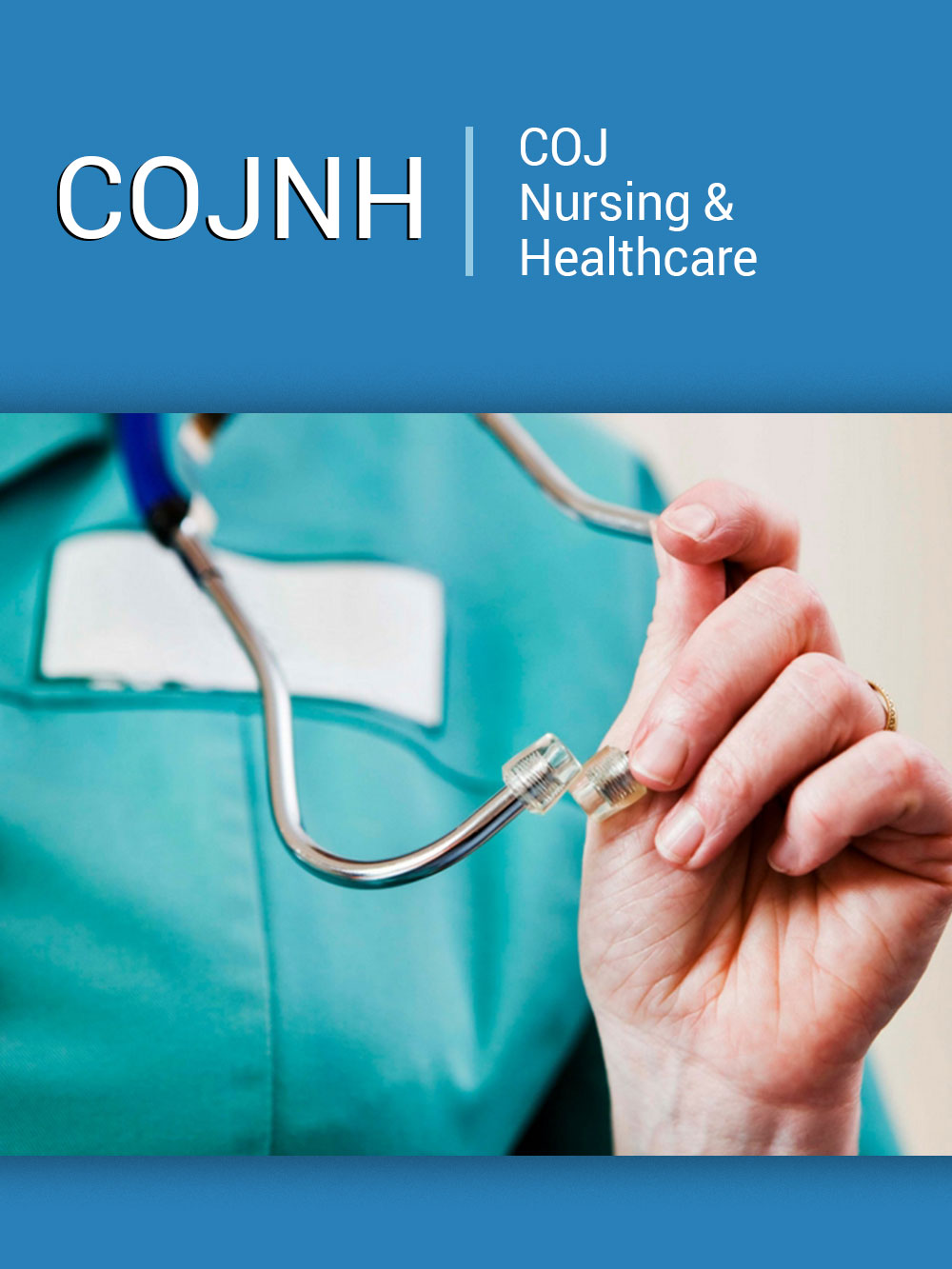- Submissions

Full Text
COJ Nursing & Healthcare
Rapid Anxiety Reduction Tools for Nursing Staff, Faculty and Students
Anne M Devney
Penn State University Mont Alto campus, USA
*Corresponding author: Anne M Devney, Penn State University Mont Alto campus, USA, Tel: 717-749-6039/ 717-749-6185; Email: amd30@psu.edu
Submission: May 12, 2018;Published: May 14, 2018

ISSN: 2577-2007 Volume2 Issue5
Learning Objectives
A. Review use of mindfulness as a stress reduction technique.
B. Review rapid anxiety reduction techniques that faculty members can use.
C. Review those strategies.
In addition to selection of stress reduction techniques, the nurse and nurse educator might consider how use of these elements may help foster improved critical thinking. The National League for Nursing’s Guide for Teaching Thinking calls for exploring context, content and course of going forward. Reflection is a critical component of assessing the relevance of content and how to use the information to go forward. Using mindfulness can provide the nurse, nursing student, and nurse educator with means for enhancing critical thinking.
Mindfulness is defined as awareness of the present moment, being nonjudgmental, simply having a sense of who and where you are. Dr. Jon Kabat-Zinn, University of Massachusetts, developed a Mindfulness-Based Stress Reduction (MBSR) program several years ago. Program elements assist the individual to foster awareness of the present moment and uses techniques such as breathing, meditation, yoga, and a body-scan awareness exercise. Mindfulness increases awareness of one’s 5 senses, noticing landscapes of your mind without holding on or pushing out what one is feeling [1].
Research in use of Mindfulness-Based Stress Reduction is underway studying medical and nursing students with reports of participants feeling less anxiety and more calmness. Practitioners of mindfulness can use autogenic techniques incorporating progressive relaxation with meditation and guided imagery.
Psychological issues in the clinical and academic setting are well known and include stressors that may be too overwhelming, reducing students’ and clinicians’ performance. Physical signs such as tremors, agitation, poor concentration, problem-solving abilities, and lack of attention can result in poor task performance and a lack of confidence. Coping skills may be overwhelmed.
Techniques that can be used range from immediate to short term to longer term time frames. For example, if you have 1 minute, take a nice deep breath and feel the air moving in and out of your chest. Feel your body’s sensations, the air about you, listen to the sound of your breathing. If you have 2 minutes, breathe in to a count of 10, breathe out to a count of 10. Feel your chest rise & fall. As you exhale, feel your muscles relax down to your feet. If you have 3 or more minutes, tighten up your forehead to a count of 3. Relax to a count of 3. Tighten up your shoulders to a count of 3 and relax to a count of 3. Work progressively down the body with muscle groups. Feel those muscles tighten and relax [2].
Of course, the techniques listed above are simply suggestions especially with noted time constraints. Meditation and yoga techniques used over longer periods of time are very useful and have been proven to be very effective. Success of techniques vary with each individual; many people are hesitant to try some mindfulness techniques and feel as though they will not work. However, the time used to focus one’s attention to the present moment can be used to develop awareness of the context of the situation and encourage reflection of the meaning within that context. Such reflection itself may provide that individual with a pause that refreshes the thinking of the moment, possibly reducing anxiety and associated stressors.
References
- Forneris SG, Fey M (2018) Critical conversations the NLN guide for teaching thinking. Wolters Kluwer, Philadelphia, USA.
- Kabat Zinn J (2018) https://www.mindful.org/jon-kabat-zinn-definingmindfulness/
© 2018 Anne M Devney. This is an open access article distributed under the terms of the Creative Commons Attribution License , which permits unrestricted use, distribution, and build upon your work non-commercially.
 a Creative Commons Attribution 4.0 International License. Based on a work at www.crimsonpublishers.com.
Best viewed in
a Creative Commons Attribution 4.0 International License. Based on a work at www.crimsonpublishers.com.
Best viewed in 







.jpg)






























 Editorial Board Registrations
Editorial Board Registrations Submit your Article
Submit your Article Refer a Friend
Refer a Friend Advertise With Us
Advertise With Us
.jpg)






.jpg)














.bmp)
.jpg)
.png)
.jpg)










.jpg)






.png)

.png)



.png)






